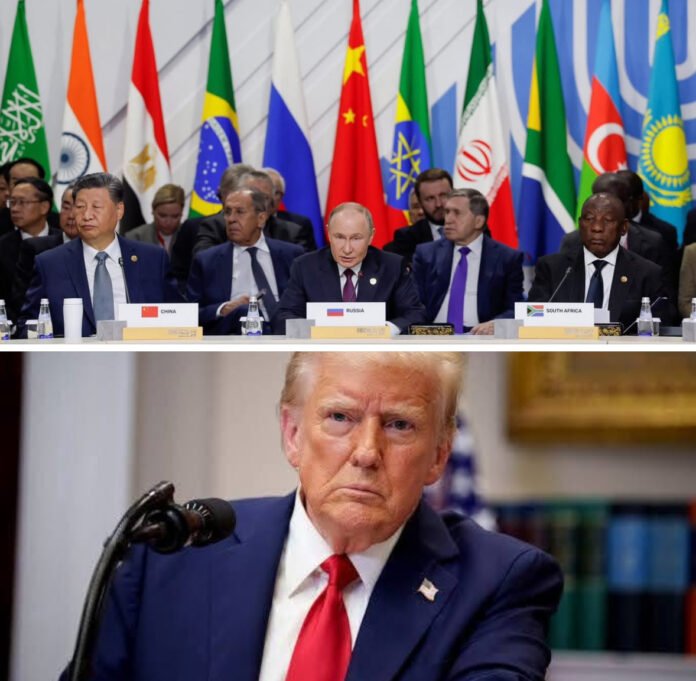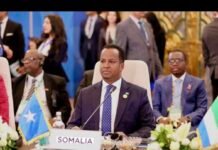By Horn Africa News Staff | Mogadishu
Rio de Janeiro, Brazil – July 6, 2025 — In a powerful show of unity, the BRICS nations—Brazil, Russia, India, China, and South Africa—issued a strongly worded condemnation of the United States over what they described as “unilateral and protectionist” tariff threats. The declaration came at the conclusion of the annual BRICS Summit held in Rio de Janeiro, where leaders gathered to deepen economic cooperation and strengthen their geopolitical stance.
In their final communiqué, known as the “Rio de Janeiro Declaration,” BRICS nations rebuked U.S. President Donald Trump’s recent proposal to impose a 10% tariff on countries that support BRICS-aligned trade and policy frameworks. The group called the proposed tariffs “indiscriminate,” warning that such measures violate World Trade Organization (WTO) rules and threaten to destabilize already fragile global supply chains.
“The BRICS countries categorically oppose the weaponization of trade by any single nation,” the declaration stated. “We emphasize the importance of a fair, rules-based multilateral trading system and reject protectionist measures that undermine international economic cooperation.”
Trump’s Tariff Warning Sparks Global Concern
President Trump, speaking at a campaign rally earlier this week, accused BRICS of “creating alternative systems that weaken American economic leadership” and warned that the U.S. would take “decisive action” against countries aligning too closely with BRICS economic platforms, including plans for a new common currency and the establishment of an independent global payment system that bypasses the U.S. dollar.
According to White House insiders, the 10% tariff would target imports from nations that enter trade or currency agreements influenced by BRICS priorities. Analysts say this could include several emerging economies in Africa, Latin America, and Southeast Asia, many of which have been expanding partnerships with BRICS in recent years.
Global South Pushes Back
The BRICS response highlights a growing sentiment across the Global South, where many developing countries view BRICS as a counterweight to Western economic dominance.
Brazilian President Luiz Inácio Lula da Silva, hosting the summit, declared that “the age of one-sided global governance is over,” and praised BRICS for giving voice to billions in the developing world. Indian Prime Minister Narendra Modi echoed the sentiment, calling on Global South countries to “stand firm against coercive trade practices.”
China’s President Xi Jinping added, “No nation should be punished for seeking partnerships that reflect their development goals and sovereignty.”
Is This a Turning Point in Global Power Dynamics?
The standoff between BRICS and the U.S. signals an escalating clash over the future of global economic governance. With BRICS expanding its outreach and influence—especially through its New Development Bank and BRICS+ initiative—some experts believe a major shift is underway in the international order.
“This could be a historic moment where the Global South asserts its independence more forcefully,” said Dr. Angela Ndlovu, a political economist at the University of Cape Town. “The challenge now is whether BRICS can offer a real alternative to Western institutions.”
Public Reaction: The Global South Has a Voice?
The announcement has sparked widespread reaction on social media under the hashtag #GlobalSouthSpeaks and #BRICSVsUS. Many users are praising BRICS for standing up to Washington, while others warn of a dangerous trade war that could hurt the poorest nations.
“Finally! The Global South is speaking with one voipce. No more bullying!”
“This could backfire if the U.S. really follows through with the tariffs. BRICS needs to have a clear strategy.”
“A multipolar world is necessary. The days of dollar dictatorship must end.”





